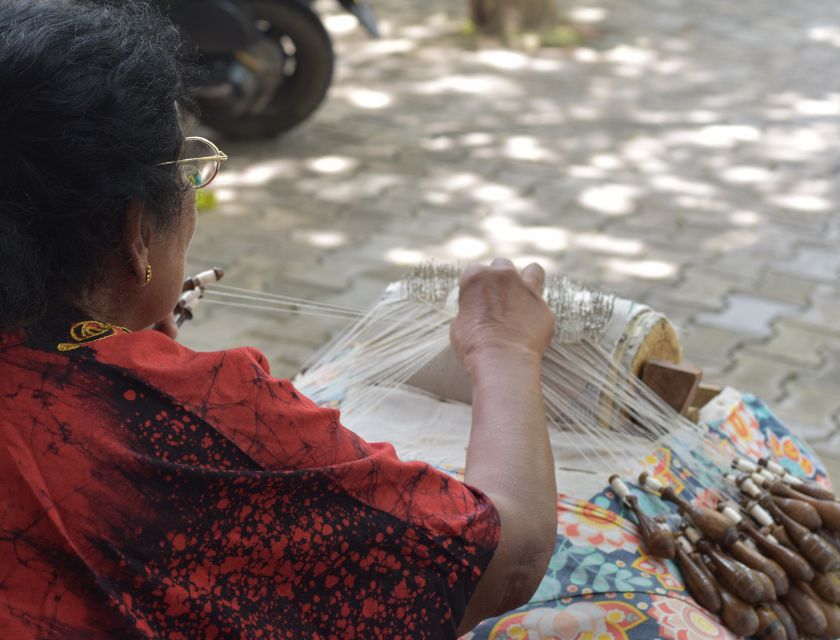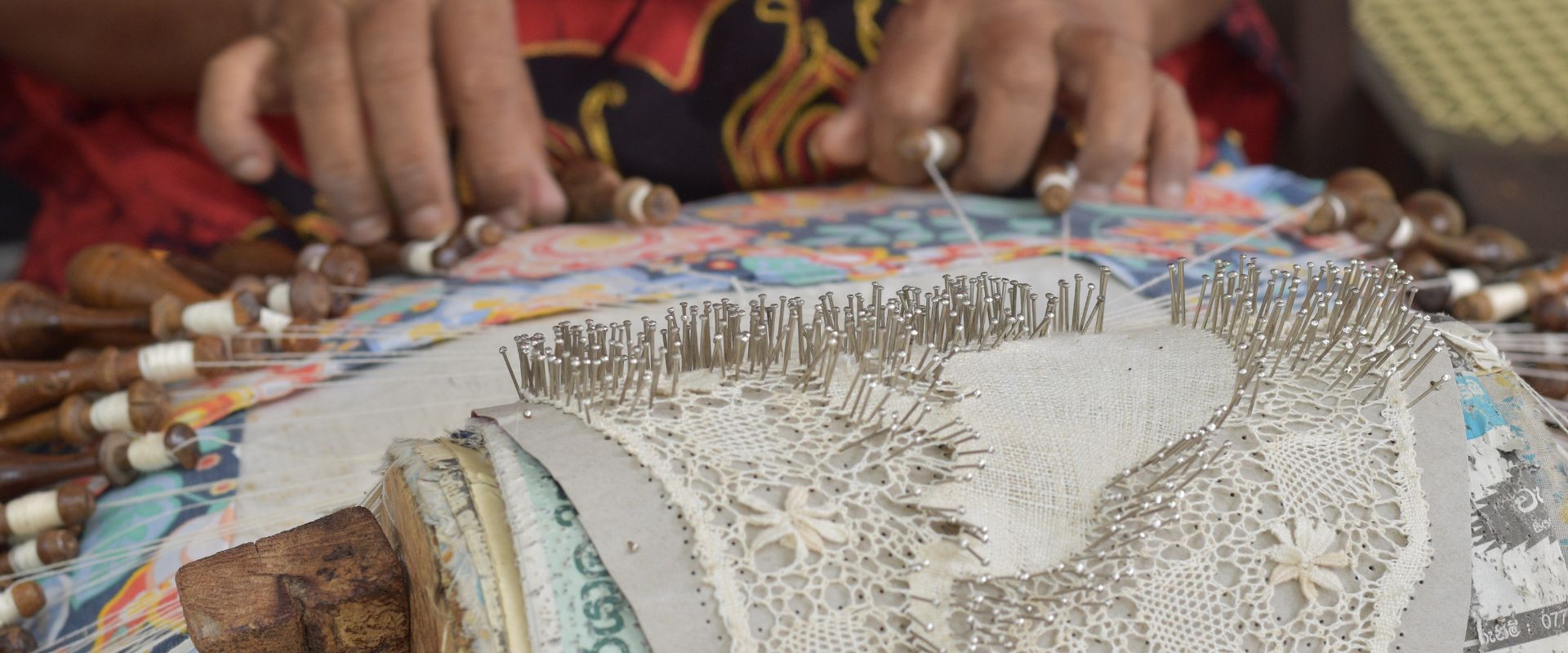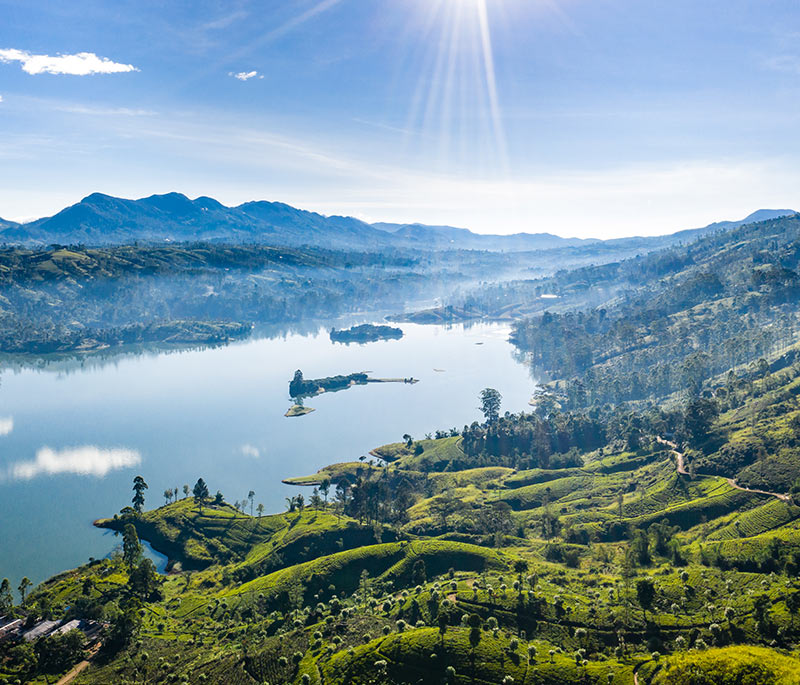Southern Soul - The Age-old Art of Weaving
Delicately charming.
Intricate details.
An age-old art of weaving.
Beeralu lace weaving, also known as bobbin lace, was first introduced to our islanders by the Portuguese during the 16th Century. Its name, Beeralu, is derived from the Portuguese word “bilro” which means bobbin, while “renda” is a Portuguese word for lace. Now a part of our own island culture and heritage, this cottage industry is practised predominantly on the southern coast; specifically in Galle and Matara.
Weaving lace in its heyday was a way of showing skill and craftsmanship. To begin, the weaver must first draw the chosen pattern on graph paper. The pattern is then marked with bobbin pins and wrapped around a padded pillow often referred to as the ‘kotta boley’. Several lengths of thread are then woven or braided with the use of wooden bobbins to create a finished piece of lace. The number of wooden bobbins would increase depending on the weaver’s skill as well as intricacy of the design or chosen pattern.

The art of weaving is a wonder in itself. It involves a great deal of focus, close attention to the pattern marked out by the pins, and skill in switching between the bobbins to make the piece come alive through loops and knots. It is evidently a slow process yet one that is enveloped in unparalleled quality and authenticity, especially as it is produced by hand. Often, several weavers work on a particular piece of design and then combine them to create one larger piece of art.
Over the years there was a decline in persons who had the skill and knowledge of weaving Beeralu, however, the National Crafts Council of Sri Lanka imposed a serious focus on its revival. The Council’s efforts and incentives were fruitful, and resulted in an increase in interest which led to a rise in the number of weavers as well as practice.
Tours of Beeralu lace making and weaving are widely popular, and crucial in sustaining this dying art. As part of our guests’ exploration of the south, a deep dive into the art of Beeralu is a must-try experience during a stay at Cape Weligama.





